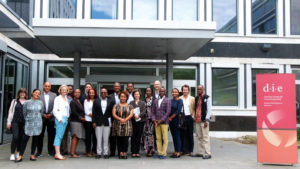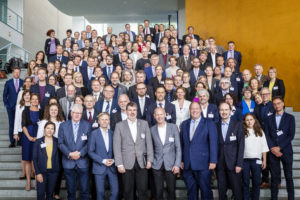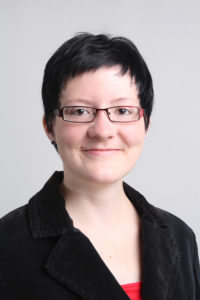On 25 June, Achim Steiner, Aministrator of the United Nations Development Programme (UNDP), visited the Bonn Alliance for Sustainability Research. In his lecture „Towards Global Sustainability: Opportunities and Challenges in the Implementation of the Agenda 2030“ at the University of Bonn, Steiner reflected current action undertaken to combat climate change and achievements for the Sustainable Development Goals (SDGs).
The Under-Secretary-General of the United Nations highlighted the work of UNDP and described the 2030 Agenda for Sustainable Development as a „risk landscape“. It expresses key challenges of the world we live in and a shared responsibility of the Global North and South. He especially emphasised the importance of interdisciplinary research, as it is planned to be intensified within the Bonn Alliance for Sustainability Research with its new Innovation Campus Bonn (launched the same day). To him, joint efforts by the private sector, politics, research and civil society initiatives, such as Fridays for Future, are essential for progress in achieving the SDGs. Only this way would the Agenda 2030 and the implementation of its goals not merely remain „letters on a piece of paper“, but become visible in everyday life. At the same time, he suggested not only to look at potential conflicts of interest between the different goals and objectives. Instead, he proposed to look closer at synergies: „For example, to invest one euro in addressing the climate target could bring many more goals into an advanced mode.“
During the discussion, moderated by Imme Scholz, Acting Director of the German Development Institute / Deutsches Institut für Entwicklungspolitik (DIE), Achim Steiner also referred to Germany’s previous efforts in the climate debate and in writing and revising a sustainability strategy. Major economic policy issues such as transforming our transportation systems, should more closely integrate innovations and sustainability aspects. Imme Scholz underlined that a global implementation of the 2030 Agenda requires a common view on existing risks.
Watch Achim Steiner’s take on the Bonn Alliance for Sustainability Research.
With its worldwide presence, UNDP is one of the most important and well-known UN organisations. It provides poorer countries with policy advice and capacity building in order to better address challenges such as poverty, inequality, climate change or crises and conflicts. Under the leadership of Achim Steiner, UNDP is positioning itself as a key player in support of sustainable development that embraces all dimensions of sustainability. For example, UNDP is working with UN member states to develop their Nationally Determined Contributions (NDCs). Steiner, who is also the most prominent alumni of DIE’s Postgraduate Training Programme, sees such support as the core of his mission: to jointly contribute to climate-smart policies and systemic approaches.
The Bonn Alliance for Sustainability Research presented the launch of the Innovation Campus Bonn on the same day as part of an evening event to a larger audience. Read more here (LINK Beitrag zum Abendevent).
Please find here a video-interview with Achim Steiner on: Are we progressing in implementing the 2030 Agenda? What role do think tanks play?



